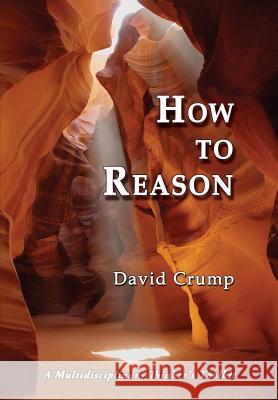How to Reason: A Multidisciplinary Thinker's Toolkit » książka
How to Reason: A Multidisciplinary Thinker's Toolkit
ISBN-13: 9781610272803 / Angielski / Miękka / 2014 / 584 str.
This book is a kind of "thinker's toolkit." It's a guide to clear reasoning. The sources range from Plato to Pareto, from Kant to Clausewitz, from Rawls to Rousseau, from Freud to Friedman, and from Adam and Eve to Adam Smith. In these pages, you will be amused by the fallacy of Bertrand Russell's chicken-and by game theorists' analyses of the game of chicken. You will see how air conditioning works, how obsessive-compulsive personality disorder is diagnosed, and how General Norman Schwartzkopf started the invasion of Iraq that began Operation Desert Storm. If some of these names are unfamiliar to you, don't worry. They're unfamiliar to many well-educated people. The purpose of this book is to cover methods of thinking that get left out of a lot of educations. You'll also encounter the Coase Theorem, the trolley problem, and Arrow's Theorem of Public Choice. You will see how psychologists think falsehoods can best be detected. You will be introduced to the concept of entropy, correlation coefficients, logical positivism, Festinger's theory of cognitive dissonance, Nash equilibria, and Shapley values-even a logic named 'Barbara' from a Latin acronym. These thinking tools can help you to analyze the arguments that other people make, as well as to develop your own. This book offers the finishing touch to a multidisciplinary education. In practical terms, it also prepares readers to do well on graduate-level entrance exams such as the GRE, GMAT, and LSAT, and improves performance in graduate schools. But it's not just for college students and test-takers: it's for readers who want to see, beyond their own field, how logical and creative thinking is done. In sum, HOW TO REASON is a multidisciplinary explanation, in clear and usable terms and examples, of the current state of knowledge about policy, philosophy, logic, statistics, game theory, legal reasoning, psychology, economics, and basic accounting. It serves as the informed student's guide to the kind of interconnected learning in several fields that equips him or her for graduate school, entrance exams, and better understanding of concepts used in many courses. "HOW TO REASON is an audacious new book, much needed. Think of it as a workout guide for healthy independent thinking." --James A. Baker III, Baker Institute, Rice University; Former Secretary of State and Chief of Staff to the President of the United States "HOW TO REASON is rigorous and fun." --Elizabeth Warren, United States Senator; Formerly Professor, Harvard University"
This book is a kind of "thinkers toolkit." Its a guide to clear reasoning. The sources range from Plato to Pareto, from Kant to Clausewitz, from Rawls to Rousseau, from Freud to Friedman, and from Adam and Eve to Adam Smith. In these pages, you will be amused by the fallacy of Bertrand Russells chicken-and by game theorists analyses of the game of chicken. You will see how air conditioning works, how obsessive-compulsive personality disorder is diagnosed, and how General Norman Schwartzkopf started the invasion of Iraq that began Operation Desert Storm. • If some of these names are unfamiliar to you, dont worry. Theyre unfamiliar to many well-educated people. The purpose of this book is to cover methods of thinking that get left out of a lot of educations. Youll also encounter the Coase Theorem, the trolley problem, and Arrows Theorem of Public Choice. You will see how psychologists think falsehoods can best be detected. You will be introduced to the concept of entropy, correlation coefficients, logical positivism, Festingers theory of cognitive dissonance, Nash equilibria, and Shapley values-even a logic named Barbara from a Latin acronym. • These thinking tools can help you to analyze the arguments that other people make, as well as to develop your own. This book offers the finishing touch to a multidisciplinary education. In practical terms, it also prepares readers to do well on graduate-level entrance exams such as the GRE, GMAT, and LSAT, and improves performance in graduate schools. But its not just for college students and test-takers: its for readers who want to see, beyond their own field, how logical and creative thinking is done. • In sum, HOW TO REASON is a multidisciplinary explanation, in clear and usable terms and examples, of the current state of knowledge about policy, philosophy, logic, statistics, game theory, legal reasoning, psychology, economics, and basic accounting. It serves as the informed students guide to the kind of interconnected learning in several fields that equips him or her for graduate school, entrance exams, and better understanding of concepts used in many courses. • "HOW TO REASON is an audacious new book, much needed. Think of it as a workout guide for healthy independent thinking." --James A. Baker III, Baker Institute, Rice University; Former Secretary of State and Chief of Staff to the President of the United States • "HOW TO REASON is rigorous and fun." --Elizabeth Warren, United States Senator; Formerly Professor, Harvard University











